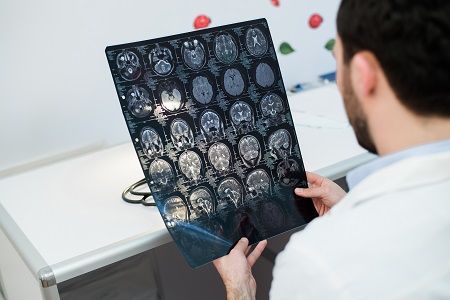Article
Fatigue Still Felt 7 Years After a Severe Traumatic Brain Injury
Author(s):
New study finds fatigue is linked to the overall level of disability following a severe traumatic brain injury.

A severe traumatic brain injury (TBI) can be debilitating for children, even 7 years following the injury.
A team, led by Hugo Câmara-Costa, PhD, University of Paris-Saclay, investigated the presence of and factors linked with self- and parent reported fatigue 7 years after a severe childhood traumatic brain injury. In the prospective longitudinal study, 38 participants between 7-22 years old submitted self-reports and/or parental reports 7 years following a severe childhood traumatic brain injury, with 33 controls matched for age, gender, and parental educational level.
The investigators included data on sociodemographic characteristics, age at injury and injury severity scores, overall disability (Glasgow Outcome Scale Extended), intellectual outcome (Wechsler scales), and questionnaires assessing executive functions, health-related quality of life, behavior, and participation.
Ultimately, the team found fatigue levels were substantially worse in the group with traumatic brain injuries than in the control group, particularly for cognitive fatigue.
They also found correlations of reported fatigue with age at injury, gender, TBI severity, and intellectual ability were moderate and not often significant. However, fatigue was significantly associated with overall level of disability and with all questionnaires completed by the same informant.
“High levels of fatigue were reported by 30-50% of patients 7 years after a severe childhood TBI,” the authors wrote. “Reported fatigue explained more than 60% of the variance of reported health-related quality of life by the same informant (patient or parent).”
One option to help treat children with severe traumatic brain injuries is by using a new adapted form of cognitive behavioral therapy. This method could reduce both the anxiety and depressive symptoms following an injury.
A team, led by Jennie Ponsford, PhD, Monash-Epworth Rehabilitation Research Center at the School of Psychological Sciences at Monash University, examined the factors linked to positive responses to CBT adapted for cognitive impairments for individuals with anxiety and depression for patients with a traumatic brain injury.
Both anxiety and depression symptoms frequently occur following a traumatic brain injury, increasing the need to evaluate the efficacy of psychological interventions and understand factors influencing response to these interventions. The current study included demographic and injury-related factors, pretreatment levels of anxiety and depression, working alliance, and change expectancy as predictors.
The investigators enrolled 45 participants in an active treatment condition within a randomized controlled trial to examine the efficacy of a 9-session CBT-adapted for anxiety and depression following a traumatic brain injury.
Using mixed-effects regressions controlling for baseline anxiety and depression, the investigators discovered for anxiety, older age at injury and a higher level of baseline anxiety was linked to greater symptom reduction. For depression, the results showed longer time since injury and higher expectancy for change, as well as a higher baseline level of depression, were significantly associated with a greater reduction in depression symptoms.
The authors said the study should yield more detailed studies on the therapeutic processes involved in alleviating anxiety and depression following a traumatic brain injury.
The study, “Self- and Parent-Reported Fatigue 7 Years After Severe Childhood Traumatic Brain Injury,” was published online in The Journal of Head Trauma Rehabilitation.





